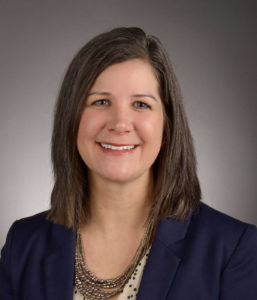
An Interview with Catherine Strode
Colorado has now become the 28th state to launch an ABLE program. The ABLE (Achieving A Better Life Experience) Act amends the IRS tax code of 1986. Colorado ABLE will allow individuals with disabilities to save thousands of dollars in an ABLE account without threat of losing their eligibility for benefits from the federal government.
Megan Brand, Executive Director of the non-profit organization ‘Colorado Fund for People With Disabilities,’ administers the state’s largest locally managed pooled trust and oversees a wide range of fiduciary services that protect the finances and benefits for individuals with disabilities.
In an interview with Catherine Strode, she cautions individuals and families to be well-informed about ABLE account usage. She says using the funds improperly can permanently jeopardize their public-funded support.
What are the general challenges of keeping people eligible for their benefits?
“I think the first challenge is working with individuals to understand all the limitations of their benefits. When you get approved for benefits you don’t get a handbook that explains all the things you can and can’t use funds for, be it an ABLE account, trust, or even Social Security dollars. Education is one of the first challenges we face. Also, the challenge as a fiduciary is working within the changing rules and regulations of Social Security and Medicaid. Just when we have things lined up the way they are supposed to work, then something changes. You don’t get a memo or bulletin saying this is the new rule. We do, because we tend to be connected with the community, but individual beneficiaries don’t. Being a fiduciary, you have to be very creative in problem solving, not only to distribute funds in a way that maintains eligibility, but also in a creative way to logistically get the job done.”
How are you working with clients on their ABLE accounts?
“In Colorado, CollegeInvest has ABLE accounts under their oversight. CollegeInvest will be joining with National Able Alliance, a consortium of over 18 states that have come together to provide ABLE accounts. CFPD has been working with CollegeInvest to see how we might partner with them in either administering these accounts or advising on these accounts. After months of discussion, CFPD has decided to provide add on services. We’re not serving as the accounts administrator. We are providing the support to help people with: what types of distributions they should use their ABLE account for, how to set it up, and any problems they might encounter along the way. The actual account administrator is Ascensus, a financial services firm. They will be responsible for all the reporting to Social Security and the IRS. CFPD has two different types of services, one is a membership service in which we will work with people to understand how the ABLE account works with their particular government benefit. The second service we offer is serving as a limited Power of Attorney specific to ABLE accounts. In that case, we will actually be in charge of making the dispersements from the account, and making the investment decisions on that account. We will also continue to offer our fee for services on the ABLE accounts which would include serving as a case manager or as conservator.”
What are you cautioning individuals about ABLE?
“I think ABLE is a great tool in the tool box. I think it is one of many things people can use in their entire financial picture and in all of their services. I just caution people that ABLE accounts are at the owner’s discretion. That could mean an opening for exploitation. That gives me pause because we need to be aware of these accounts and that people could be vulnerable. They could easily make mistakes. They are given a debit card with the ABLE account. They could easily make a mistake that could have repercussions with their Medicaid benefits from then on.”
What else may your clients not be aware of in protecting their benefits?
“New to CFPD in the last year and a half is the scrutiny on the Medicaid accounts, specifically on the disability trusts, where there is a Medicaid payback at the time of the person’s death. We have seen a heightened scrutiny of those accounts in requests for information, receipts, and documentation on how funds were spent. That’s something that has been a new challenge to us. Not that we didn’t have the information but in the time it takes to respond to those requests. Then also in explaining to our beneficiaries why we’re asking for all the information that we do. We know we are going to be responsible to Medicaid for that accounting. I believe this is directly related to the fact that Medicaid is providing services to more individuals. They have more of a burden on their budget so they have to really pay attention to anything they might get for a state recovery. One of those ways is on disability trusts.”
 Catherine Strode is Advocacy Denver’s Communications and Policy Specialist. She holds a Masters degree in Public Administration with an emphasis in Health Care Policy. Catherine publishes Policy Perspective, featuring interviews with state policy makers on issues that affect the work and mission of Advocacy Denver.
Catherine Strode is Advocacy Denver’s Communications and Policy Specialist. She holds a Masters degree in Public Administration with an emphasis in Health Care Policy. Catherine publishes Policy Perspective, featuring interviews with state policy makers on issues that affect the work and mission of Advocacy Denver.
